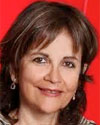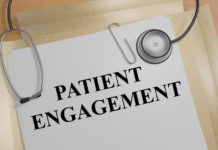Can New Technologies Improve Healthcare? Exploring the 2.0 DoctorClick Here for Additional Resources
A conversation with Denise Silber, CEO of Basil Strategies and Founder of Doctors 2.0 & You conference, and Dr. Frank Antwerpes, President, DocCheck Medical, about the use of Web 2.0 and social media such as Twitter for improving patient care.
They’ll be giving their international perspective on the uptake of Web 2.0 and Social Media, the advantages and disadvantages from the physician and patient perspective, and how the ever-evolving landscape of tools and devices are impacting things.
Aired LIVE on: Wednesday, March 14, 2012
Listen to internet radio with Pharmaguy on Blog Talk Radio
You may also visit this Pharma Marketing Talk Segment Page to listen to the audio podcast.
This show and ALL Pharma Marketing Talk shows are available as podcasts via PMT on iTunes (FREE!).
Background
Some comments related to this topic taken from the Doctor 2.0™ & You Manifesto online collaboration:
“Social Media have been widely adopted thoughout the world and healthcare professionals are no different than other people in doing so.However, ther are a few issues that need to be solved.
- SoMe are primarily used to teach and to learn and hardly at all to treat. Since treating patients is Healthcare’s core business, SoMe have not reached that core enough yet.
- We need to “Mind the Gap”. There is a gap between SoMe networks of patients and those of healthcare professionals. Bridging the gap will bring us a a step further.
- There may be a need for more robust platforms for safe use of SoMe in healthcare. However, we should not focus on technology too much and we should certainly not use this argument as a reason to postpone innovation!”
“…physicians should get out of their ivory tower and understand the social changes, their role in healthcare systems, that in many countries are in dire straits, the emergence of a new breed of patients. Patients who come to the medical appointment, already basically informed about their symptoms and who are eager to understand more and actively cooperate with their doctors. The internet had the catalyst role of democratising medical knowledge that was till a few years ago only in the realm of health professionals.”
“Given the relatively low number of healthcare organizations that have actually deployed an optimized mobile website, I’m curious to hear from others: Do you think it’s enough for your healthcare organization to just be online?
Mobile internet access is not a mere fad — widespread adoption of mobile communications means an investment in mobile development now can set your healthcare organization apart. Hospital websites that are optimized for smartphone browsers:
- Better attract new patients who are looking for healthcare information on their smartphones. People have come to expect easy access to information on their smartphones, so if potential patients find it easier to use your website, they will probably turn to you for their healthcare needs. On the flip side, if your organization does not provide easy access, they may browse to another site that does.
- Boost their patient satisfaction scores. Because mobile users have global access to information and people anywhere, anytime, and anyplace, mobile tools help improve communications with patients, as well as physicians, other care providers and employees. But I’m just curious… [this is perhaps more applicable to US hospital types]”
The goal of the Doctor 2.0™ & You Manifesto “is to identify the ways in which the inclusion of health 2.0 tools and social media platforms can improve care and translate this into the words of a manifesto” (see here for more information).
Some Questions/Topics Discussed
- How would you rate the importance of various internet tools and services such as online patient and physician forums, mobile apps, and online health records, in improving healthcare?
- As of today, what has been the impact of the web on healthcare iin terms of patient and physician knowledge, access to experts, patient support, cutting costs, etc.?
- Which public health problems will benefit the most from these new technologies?
- Which countries or areas of the world are leading the way with health-related social media, mobile apps, online communities, etc.?
Guest Bios
 Denise Silber, an American in Paris, and former pharmaceutical manager, has been involved in eHealth since 1995, managing the creation of the first medical web sites in France and participating in the many working groups on the theme of quality and ethics on the web: AFGIS, European Commission, French Ministry of Health, HAS, HON, HSWG, Internet Healthcare Coalition, Medcertain, WHO, URAC. In 2008, Denise Silber founded AQIS, the association for the Quality of Health Internet Sites.
Denise Silber, an American in Paris, and former pharmaceutical manager, has been involved in eHealth since 1995, managing the creation of the first medical web sites in France and participating in the many working groups on the theme of quality and ethics on the web: AFGIS, European Commission, French Ministry of Health, HAS, HON, HSWG, Internet Healthcare Coalition, Medcertain, WHO, URAC. In 2008, Denise Silber founded AQIS, the association for the Quality of Health Internet Sites.
In 2010, her company Basil Strategies co-organized the Health 2.0 Europe conference in Paris and this year is in charge of Doctors 2.0 & You. Denise also teaches at Essec Business School. A Harvard MBA, Denise is President of PharMBA. Don’t miss her blog.
On Jan 1, 2011, Denise was named to the Legion of Honor, France’s highest civil decoration. You can follow her on Twitter: @health20paris  Dr. Frank Antwerpes
Dr. Frank Antwerpes
The DocCheck® Medical Services Chief Executive Officer is a physician and dentist, who also worked as a freelance copywriter and conceptor for advertising agencies and industrial enterprises during his studies.
In 1996 he had the idea to provide an online community for healthcare professionals. The DocCheck® Medical Services GmbH was founded in 1999 after the community starts to getting bigger and the services were enlarged.
With more than 500,000 users worldwide today, the simple idea of a place their healthcare professionals can come together turned out to be a huge success – for DocCheck® and their users.
Additional Resources
- Doctors 2.0 & You conference ( Paris, France – May 23-24 2012)
- This survey asks you about the impact of New Technologies on healthcare.
- Doctor 2.0™ & You Manifesto









![6 Digital Tools at the Center of Healthcare Digitalization [INFOGRAPHIC]](http://ec2-54-175-84-28.compute-1.amazonaws.com/pharma-mkting.com/wp-content/uploads/2021/04/6DigitalTools_600px-100x70.jpg)




